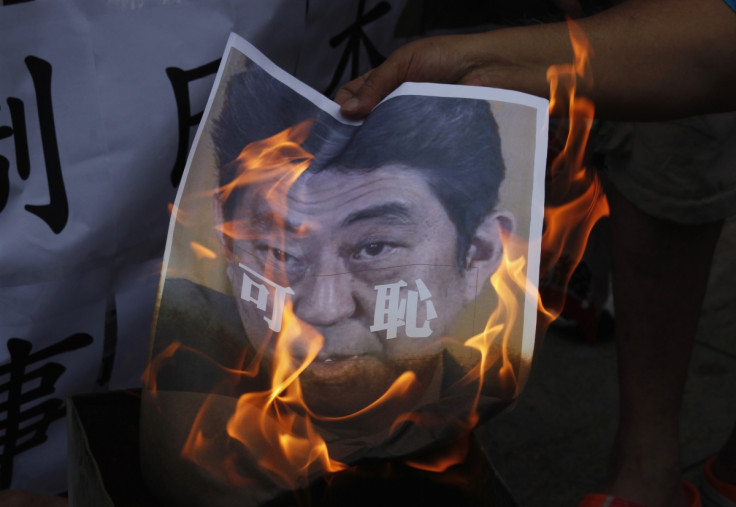China Publishes Japanese War Criminals' Confessions as Xi Lambasts Tokyo on Conflict Anniversary

China has published written confessions of war crimes by a Japanese general, as President Xi Jinping lambasted Tokyo on the 77th anniversary of the beginning of a bloody conflict between the two countries.
The written war crimes confessions of Tsutomu Nagashima, commander of the 54th Brigade of the Japanese Army, were the last of a series of documents published by the State Archives Administration, describing horrors and massacres allegedly carried out by Japanese troops during the conflict.
"Besides shooting, other extremely cruel killing methods such as bayoneting, hacking, beheading, exploding, burning, hanging and sending to gas chamber were also used during the battles," Nafashima confession read.
Beijing has waged propaganda war on its neighbour, as existing tensions were exacerbated by Japan's reinterpretation of its pacifist constitution to allow its forces more freedom of action.
China said Nagashima was one of the more than 1,000 "Japanese war criminals" captured in 1945.
His confession is part of material from military trials that Beijing has pledged to release on daily basis for 45 days, in answer to Japanese Prime Minister Shinzo Abe's "stubborn denial" of atrocities committed during the war.
Last year, Abe, a right-wing hawk, caused a stir as he visited a shrine in Tokyo that honours Japan's war dead, including convicted war criminals.
Other confessions read: "massacred all inhabitants of about 50 households in a village along the Dengxian County-Laohekou road, 200 meters to the north of Zhulinqiao, killing seniors, women, children... and other inhabitants; used gas shells during the attack in Maqushan on the same day."
"Shot dead 12 Chinese people including one woman in Luoyang, Henan," another one read.
The extracts served as a prelude to President Xi's speech at the unusually high-profile commemoration of the Marco Polo Bridge incident that marked the start of the war.
"Unfortunately, nearly 70 years after the victory of the Chinese war of resistance against Japanese aggression and the anti-Fascist war, there is still a minority group of people who ignore historical facts, who ignore the tens of thousands of lives lost in the war, who go against the tide of history and deny and even beautify the history of aggression and harm international mutual trust and create regional tension," Xi said at a ceremony at the bridge now named Lugou in suburban Beijing.
On 7 July 1937 Japanese forces that had been in China's northeast since 1905 provoked a clash with Chinese soldiers at the bridge in what is considered the first battle of the second Sino-Japanese war, which ended with Japan's defeat by the Allies in 1945.
Today, the two countries are embroiled in a dispute on the ownership of a group of islands in the East China Sea.
Earlier this month, also to counter Beijing's growing influence in the region, Tokyo approved a change in its post-war pacifist security policy to allow its military fight overseas.
Whitelist supported by the United States and Australia the move has been harshly criticised by China and South Korea which described it as a "warring" development.
© Copyright IBTimes 2025. All rights reserved.




















